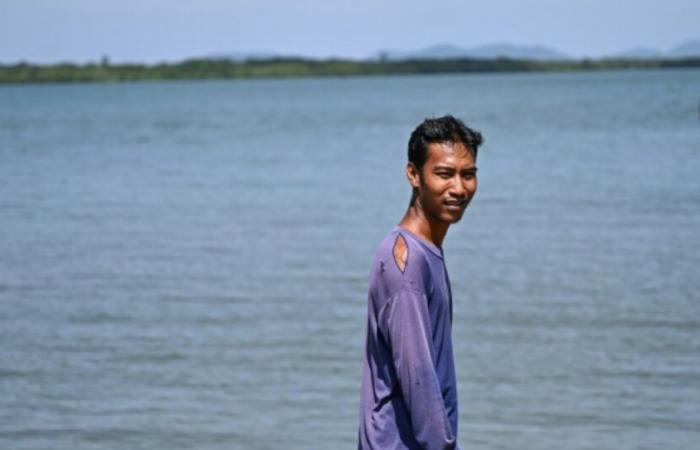Pirun Kla-Talay earns his living as a fisherman in the waters of the Andaman Sea, the same ones that swept away his parents when he was eight years old, in 2004, in the tsunami that devastated the coasts of the southwest of the Thailand.
“The sea makes me both sad and happy,” he explains. “It reminds me of the loss of loved ones, but it also shaped who I am today.”
He sets out offshore every morning, and sells the day's catch at a local market in Phang Nga province, along the west coast, where he has always lived.
On December 26, 2004, a magnitude 9.1 earthquake at the bottom of the Indian Ocean triggered a gigantic tsunami that killed around 230,000 people in around ten countries in South and South-East Asia.
Many communities living along the water's edge are devastated. Between 1,000 and 2,000 children lost at least one parent during the tsunami, according to Unicef.
Pirun was bird watching when a huge noise disturbed his peace.
“I knew the sound of the waves. This sound was not normal,” he recalls.
He then ran to warn neighbors, then took shelter on higher ground, from where he saw the immense wall of water destroy everything in its path.
“I thought I wasn’t going to survive,” he says.
His parents were killed in their home on a small island near the coast, Phra Thong.
After the tragedy, Pirun lost his enthusiasm for activities at sea. The sound of the waves woke him up during sleepless nights.
– Mutual aid –
Raised by his aunt, he rebuilt his life on the mainland, just opposite the island of Phra Thong.
His story inspired his wife Janjira Khampradit. “Meeting him taught me to live every day as if anything could happen, and to enjoy life to the fullest,” she said.
A little further south, Watana Sittirachot lost an uncle, whose body was never found, who had taken care of him since his parents' divorce.
“He was a gifted cook,” he recalls. “Every time I eat fish, I always think of him. He prepared the best dishes.”
The young Watana, then aged 12, was playing a computer video game in an internet café in Ban Nam Khem, when he saw the huge wave approaching in the distance.
“Suddenly people started running and screaming,” he describes. He had found shelter in the village shelter.
A teacher invited him to join an association to combat the depression that had engulfed him after the disaster.
In 2006, he became one of the first residents of the Baan Than Nam Chai Foundation, created by two Thai social workers, which housed tsunami orphans.
He is today its general secretary, the association today helping more than 90 children whose parents cannot take care of them.
“We must move forward,” he says. “No one is going to stay with you forever.”





